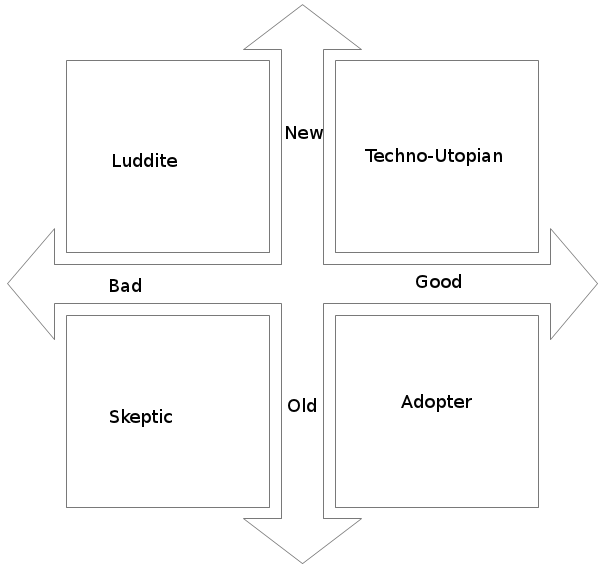I’ll be using Omeka to collect and organize the myriad cultural objects that are beginning to congeal around my research into the internet in West Africa. This platform also plays really well with academic organizational conventions and even with bibliographic management software, like Zotero, which I love. For now I’m using the hosted version, at lewislevenberg.omeka.net — more to come there soon.
Tag Archives: process
Internet – Synthesis – On Newness
The question of what, after all, is so new about the internet has run through the introductory and summary posts in this series. It is a divisive question. Some proclaim the revolutionary, worldchanging emergence of the internet a wholly unique phenomenon. Others describe its continuity with older forms of media, communication, technology, or ideas. And each vein has its proponents and detractors of the internet’s cultural effects, which seem ubiquitously manifest, though not unequivocally ethically or morally valenced. Since we are concerned, here, with not just cultural effects but also cultural conditions for today’s internet, though, we cannot neatly reduce our approach to any of these positions.
So, we are faced with a series of comparisons and contrasts.
